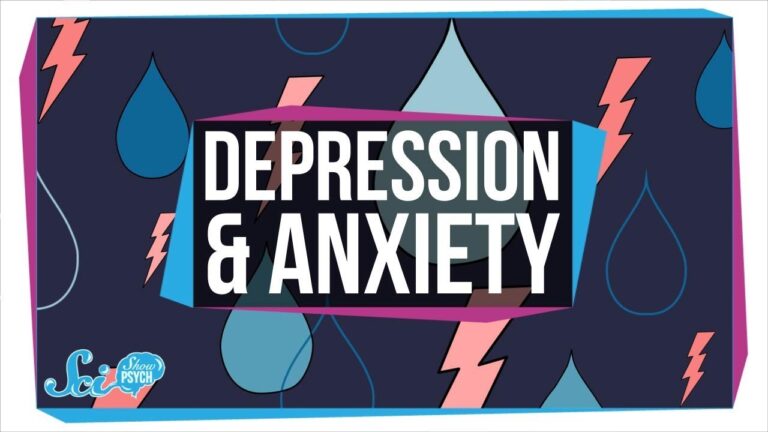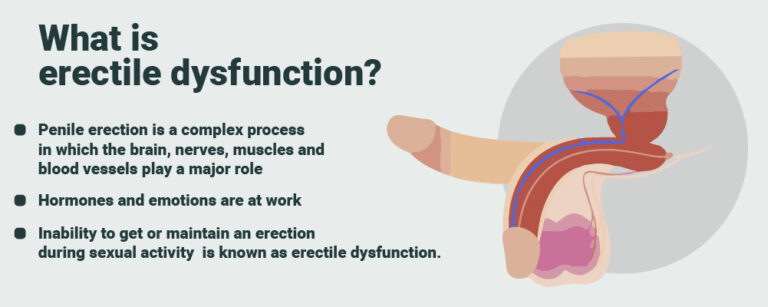The Myths and Facts About Mental Illness: How to Educate Yourself and Others

Understanding Mental Illness: Debunking Common Misconceptions

Mental illness is a complex and often misunderstood topic, plagued by numerous misconceptions. It is important to debunk these misconceptions in order to promote a better understanding of mental health and support those in need. One common misconception is that mental illness is a sign of weakness or personal failure. However, it is crucial to recognize that mental health disorders are not a result of a lack of willpower or character flaws. They are legitimate medical conditions that can affect anyone, regardless of their strengths or weaknesses.
Another myth surrounding mental illness is that individuals with mental health disorders are dangerous or violent. In reality, research consistently shows that people with mental health conditions are no more likely to engage in violent behavior than those without such conditions. In fact, individuals with mental illness are more likely to be victims of violence rather than perpetrators. It is important to challenge these stereotypes and recognize that individuals with mental health disorders deserve compassion, understanding, and support. By debunking these misconceptions, we can foster a more inclusive and empathetic society that prioritizes the well-being of all its members.
The Impact of Stigma on Mental Health: Breaking the Silence

Stigma surrounding mental health remains a pervasive issue that is often overlooked or dismissed. Its impact on individuals with mental illness can be profound, leading to isolation, discrimination, and a reluctance to seek help. The silence and shame that accompany stigma can exacerbate symptoms, hinder recovery, and perpetuate misunderstandings about mental health.
One of the main consequences of stigma is the barrier it creates to accessing proper mental health care. According to the World Health Organization (WHO), approximately two-thirds of individuals suffering from mental illnesses do not seek professional help, largely due to fear of judgment and discrimination. This not only delays the start of necessary treatment but also prevents individuals from receiving the support and resources they need to manage their conditions effectively. Stigma can make people feel as if they have to face their mental health challenges alone, when in reality, seeking help and support is essential for their well-being.
Recognizing the Signs and Symptoms of Mental Illness

When it comes to mental illness, recognizing the signs and symptoms is crucial for early intervention and effective treatment. While the specific manifestations can vary depending on the individual and the type of disorder, there are common indicators to be aware of. Changes in behavior, mood, thoughts, and emotions may all serve as red flags. For example, someone experiencing depression may exhibit persistent sadness, loss of interest in activities once enjoyed, changes in appetite, sleep disturbances, and feelings of worthlessness or guilt. Anxiety, on the other hand, might manifest as excessive worrying, restlessness, difficulty concentrating, and physical symptoms like muscle tension or panic attacks. It is important to keep in mind that these symptoms may occur on a spectrum, and a professional evaluation is necessary for an accurate diagnosis.
Recognizing these signs and symptoms requires attentive observation and empathy. It is crucial to approach the topic of mental illness with sensitivity and open-mindedness, as many people may suffer in silence due to the fear of stigma and judgment. By fostering an environment where individuals feel safe and validated, we can encourage them to seek help and support. Additionally, educating ourselves and others about the signs and symptoms of mental illness can equip us to recognize when someone is in need and take appropriate action. Remember, early intervention can make a significant difference in the recovery process and improve the overall well-being of individuals affected by mental illness.
Exploring the Different Types of Mental Disorders
Mental disorders are complex conditions that affect millions of people worldwide. They can vary in their symptoms, causes, and treatments, making it vital to understand the different types. By exploring these various mental disorders, we can gain insight into the diverse ways in which mental health can be impacted and the necessary steps to seek appropriate help.
One commonly known mental disorder is depression. According to the World Health Organization, an estimated 264 million people of all ages suffer from depression globally. This mood disorder can manifest as persistent feelings of sadness, loss of interest in activities, changes in appetite, and fatigue. It is crucial to remember that depression is not simply feeling down or experiencing temporary sadness; it is a medical condition that can significantly impair one’s daily life. Seeking professional help, such as therapy or medication, can be instrumental in managing and treating depression effectively.
Another mental disorder that deserves attention is anxiety disorder. Anxiety disorders encompass a range of conditions, including generalized anxiety disorder, panic disorder, social anxiety disorder, and specific phobias. These disorders are characterized by excessive worry, fear, and anxiety that can interfere with a person’s daily functioning. The Anxiety and Depression Association of America estimates that approximately 40 million adults in the United States, or 18.1% of the population, have an anxiety disorder. Early recognition and timely intervention through therapy, cognitive-behavioral techniques, and lifestyle modifications can significantly improve the quality of life for individuals with anxiety disorders.
Understanding the various types of mental disorders is a crucial step in promoting mental health and seeking appropriate help. By shedding light on these conditions, we can combat stigma, encourage open conversations, and work towards a society that supports and cares for individuals experiencing mental health challenges.
Certainly! Here’s a table summarizing different types of mental disorders categorized by their primary classifications:
| Classification of Mental Disorders | Types of Mental Disorders | Overview and Characteristics |
|---|---|---|
| Mood Disorders | Major Depressive Disorder, Bipolar Disorder | Involves disturbances in mood, ranging from persistent sadness to episodes of manic behavior. |
| Anxiety Disorders | Generalized Anxiety Disorder, Panic Disorder, Social Anxiety Disorder | Characterized by excessive worry, fear, or avoidance, impacting daily functioning. |
| Psychotic Disorders | Schizophrenia, Schizoaffective Disorder | Involves distorted thinking, hallucinations, and impaired perception of reality. |
| Obsessive-Compulsive and Related Disorders | Obsessive-Compulsive Disorder, Body Dysmorphic Disorder | Involves intrusive thoughts and repetitive behaviors or preoccupations. |
| Trauma- and Stressor-Related Disorders | Post-Traumatic Stress Disorder, Acute Stress Disorder | Result from exposure to traumatic events, leading to emotional distress. |
| Eating Disorders | Anorexia Nervosa, Bulimia Nervosa | Characterized by unhealthy eating patterns, often related to body image concerns. |
| Dissociative Disorders | Dissociative Identity Disorder, Depersonalization-Derealization Disorder | Involves disruptions in consciousness, memory, identity, or perception. |
| Personality Disorders | Borderline Personality Disorder, Narcissistic Personality Disorder | Enduring patterns of behavior, cognition, and inner experience that deviate from cultural norms. |
| Neurodevelopmental Disorders | Attention-Deficit/Hyperactivity Disorder (ADHD), Autism Spectrum Disorder (ASD) | Onset during developmental periods, affecting cognitive and social functioning. |
| Sleep Disorders | Insomnia Disorder, Sleep Apnea | Disruptions in sleep patterns, affecting quality and duration of sleep. |
| Substance-Related and Addictive Disorders | Substance Use Disorders, Gambling Disorder | Involves problematic use of substances or behaviors, leading to impairment. |
| Neurocognitive Disorders | Alzheimer’s Disease, Vascular Neurocognitive Disorder | Result in significant cognitive decline, affecting memory and daily functioning. |
| Somatoform Disorders | Somatic Symptom Disorder, Illness Anxiety Disorder | Manifests as physical symptoms without clear medical cause, often related to anxiety. |
| Disruptive, Impulse-Control, and Conduct Disorders | Oppositional Defiant Disorder (ODD), Conduct Disorder | Involves persistent patterns of defiant or antisocial behavior. |
| Gender Dysphoria | Gender Dysphoria | Distress arising from incongruence between assigned gender at birth and experienced gender. |
Unveiling the Truth: Dispelling Myths About Mental Health Treatment
Dispelling Myths About Mental Health Treatment
When it comes to mental health treatment, there are several common misconceptions that can lead to misunderstandings and barriers to care. Let’s debunk some of these myths and uncover the truth behind mental health treatment.
Myth #1: Mental health treatment is only for people with severe or chronic conditions. In reality, mental health treatment can be beneficial for individuals experiencing a range of mental health issues, from mild anxiety to more severe conditions such as schizophrenia. Seeking treatment early on can help prevent the condition from worsening and improve overall well-being.
Myth #2: Therapy is a sign of weakness. This myth couldn’t be further from the truth. Therapy is not a sign of weakness but rather a courageous step towards self-improvement and healing. Just as one would seek medical treatment for a physical ailment, seeking therapy or counseling for mental health concerns is a proactive step towards recovery and empowerment.
By dispelling these myths and shedding light on the truth about mental health treatment, we can encourage individuals to seek the help they need and deserve. Everyone deserves to live a life of mental well-being, and seeking treatment is an important step on that journey.
The Importance of Early Intervention and Seeking Help
Seeking help and intervention for mental health concerns can often be a challenging step, but it is one that should not be overlooked. Early intervention plays a significant role in the management and recovery of mental illness, helping individuals to regain control of their lives and improve their overall well-being.
Research has shown that early treatment can lead to better outcomes for individuals with mental health conditions. In fact, a study published in the Journal of Clinical Psychiatry found that individuals who received early intervention experienced reduced symptom severity and improved functioning compared to those who delayed seeking help. This highlights the importance of addressing mental health concerns as soon as possible to prevent them from escalating and potentially leading to more significant challenges.
Recognizing the signs and symptoms of mental illness and knowing when to seek help is crucial. It is essential to pay attention to changes in mood, behavior, and thought patterns, as well as any physical symptoms that may be associated with mental health conditions. If you or someone you know is experiencing persistent feelings of sadness or hopelessness, withdrawal from activities, changes in sleep or appetite, or difficulties with concentration and decision-making, it may be time to reach out for support.
Remember, seeking help is not a sign of weakness but rather a sign of strength and resilience. By taking that crucial step of early intervention, individuals can significantly improve their chances of recovery and gain access to the resources and support they need. It is essential to break the silence surrounding mental health and create a safe and supportive environment where seeking help is encouraged and celebrated. Together, we can make a difference in promoting mental well-being and ensuring that no one faces their struggles alone.
Addressing the Link Between Substance Abuse and Mental Illness
Substance abuse and mental illness are often intertwined, with each condition exacerbating the other. Individuals with mental illnesses may turn to substance abuse as a way to self-medicate or alleviate their symptoms. On the other hand, substance abuse can lead to or worsen mental health issues, creating a vicious cycle that is difficult to break.
Research shows that there is a clear relationship between substance abuse and mental illness. According to the National Institute on Drug Abuse, about half of individuals with a severe mental disorder also have a substance abuse problem. In fact, substance abuse rates are significantly higher among those with mental illnesses compared to the general population.
The connection between these two conditions is complex, with several underlying factors at play. Mental illness and substance abuse often share common risk factors, such as genetic predispositions, environmental influences, and childhood trauma. Additionally, substances like alcohol and drugs can directly impact the brain chemistry and worsen symptoms of mental disorders. For example, alcohol can increase depression and anxiety, while stimulant drugs can trigger psychosis or exacerbate existing psychotic disorders.
It is crucial to address the link between substance abuse and mental illness to provide individuals with the support and treatment they need. By recognizing the connection and providing integrated care that addresses both conditions simultaneously, we can help individuals break free from the destructive cycle and improve their overall well-being.
Promoting Mental Well-being: Strategies for Self-care
Taking care of your mental well-being is essential for leading a healthy and fulfilling life. It involves adopting strategies that promote self-care and nurture your emotional and psychological needs. By prioritizing mental well-being, you can enhance your overall quality of life and build resilience to face life’s challenges.
One important strategy for promoting mental well-being is practicing self-care activities that bring you joy and relaxation. Engaging in activities such as practicing mindfulness, exercising regularly, and pursuing hobbies can help reduce stress, improve mood, and boost self-esteem. Additionally, setting boundaries and practicing self-compassion are crucial aspects of self-care. Learning to say no when necessary and treating yourself with kindness and understanding can help prevent emotional exhaustion and burnout. By incorporating these strategies into your daily routine, you can enhance your mental well-being and maintain a balanced and fulfilling life.
Supporting Loved Ones with Mental Health Challenges: What You Need to Know
Supporting a loved one with mental health challenges can be a complex and emotional journey. It is important to approach this role with empathy, understanding, and patience. While the specific needs of each individual may differ, there are some general principles that can guide you in providing support.
First and foremost, it is crucial to educate yourself about mental health conditions. Understanding the symptoms, causes, and treatment options can help you comprehend what your loved one may be going through and how you can offer assistance. Reliable sources such as reputable websites, books, or mental health professionals can provide you with accurate information that dispels myths and misconceptions about mental illness.
The Role of Therapy and Counseling in Mental Health Recovery
Therapy and counseling play a crucial role in the recovery from mental health disorders. These professional interventions provide individuals with the tools, support, and guidance needed to navigate the challenges of their conditions and work towards healing and well-being. Through therapy and counseling, individuals can gain a better understanding of their mental health issues, develop effective coping mechanisms, and explore strategies to improve their overall quality of life.
One of the primary advantages of therapy and counseling is the opportunity they provide for individuals to express their thoughts, emotions, and concerns in a safe and non-judgmental space. This can be particularly valuable for individuals who may feel isolated or misunderstood in their daily lives. By talking openly and honestly with a therapist or counselor, individuals can gain valuable insights into their experiences, identify patterns or triggers that contribute to their mental health challenges, and learn healthier ways of thinking and behaving.
Studies have shown that therapy and counseling are effective for a wide range of mental health disorders, such as depression, anxiety, post-traumatic stress disorder (PTSD), and bipolar disorder, among others. In fact, a meta-analysis of over 200 studies found that individuals who engaged in therapy experienced significant improvements in their symptoms and overall well-being compared to those who did not receive any treatment.
Furthermore, therapy and counseling can be tailored to meet the unique needs and preferences of each individual. There are various therapeutic approaches available, including cognitive-behavioral therapy (CBT), dialectical behavior therapy (DBT), psychodynamic therapy, and mindfulness-based interventions, among others. These approaches can be used individually or in combination, depending on the specific goals and challenges of the individual.
It is important to note that therapy and counseling are not quick-fix solutions. Recovery from mental health disorders is a gradual and ongoing process that requires commitment, patience, and consistent effort. A trusting and collaborative relationship between the therapist or counselor and the individual is essential to ensure a positive therapeutic experience. Over time, individuals can develop the skills, resilience, and self-awareness necessary to manage their symptoms, improve their relationships, and cultivate a sense of well-being.
In conclusion, therapy and counseling are integral components of mental health recovery. They provide individuals with a supportive and structured environment to explore their thoughts, emotions, and behaviors, and develop effective strategies to overcome their challenges. By seeking professional help, individuals can take an active role in their treatment and work towards leading healthier and more fulfilling lives. When considering therapy or counseling, it is important to consult with a trusted healthcare professional who can guide and support you on your journey towards mental well-being.
Understanding the Rights and Protections for Individuals with Mental Illness
Rights and protections for individuals with mental illness play a crucial role in ensuring their well-being and promoting a fair and inclusive society. Understanding these rights is essential for both individuals affected by mental health challenges and the wider community.
One fundamental right is the right to access appropriate mental health care. This includes the right to timely and affordable treatment, medications, therapy, and other support services. Unfortunately, many people with mental illness face barriers in accessing the care they need due to various factors such as stigma, lack of resources, or limited availability of mental health professionals. Breaking down these barriers is essential to ensure that everyone, regardless of their mental health status, can receive the necessary support and treatment to improve their quality of life.
Another important aspect of protecting the rights of individuals with mental illness is safeguarding their right to privacy and confidentiality. Just like with any other medical condition, individuals with mental health challenges have the right to keep their personal information confidential. This includes details about their diagnosis, treatment, and any other sensitive information related to their mental health. Upholding these rights not only preserves an individual’s dignity and autonomy but also encourages open and honest discussions about mental health between patients and healthcare providers.
Navigating the Challenges of Mental Illness in the Workplace
Navigating the Challenges of Mental Illness in the Workplace can be a daunting task for both employees and employers. Mental health issues can affect an individual’s ability to perform their job effectively, leading to increased stress, lower productivity, and strained relationships with colleagues. It is estimated that mental illness costs the global economy over $1 trillion in lost productivity each year.
One of the main challenges faced in the workplace is the stigma surrounding mental health. Many individuals fear that disclosing their mental health condition to their employer or colleagues will lead to judgment, discrimination, or even job loss. As a result, they may suffer in silence, sacrificing their well-being for the sake of maintaining secrecy. This stigma not only hampers individuals from seeking help and support but also perpetuates the misconceptions surrounding mental illness.
To address these challenges, workplaces need to foster a culture of openness and understanding. Employers can play a vital role by implementing policies that promote mental health and well-being, ensuring that their employees have access to resources such as counseling services and mental health support groups. Providing mental health training to managers and colleagues can also help in creating a supportive environment where individuals feel comfortable discussing their mental health concerns. It is crucial for employers to recognize that investing in their employees’ mental well-being not only benefits the individual but also contributes to a healthier and more productive workplace.
Promoting Mental Health Education in Schools and Communities
Promoting mental health education in schools and communities is crucial in creating a society that is well-informed and supportive of individuals with mental health challenges. By providing knowledge and understanding, we can break down the barriers and stigma surrounding mental health, leading to a more inclusive and compassionate environment.
In schools, incorporating mental health education into the curriculum can help young people develop the necessary skills to recognize and address their own mental well-being. This can be done through interactive lessons that teach students about emotions, stress management, coping strategies, and seeking help when needed. By fostering open conversations about mental health from an early age, we can empower students to take care of their mental well-being and build resilience for the future.
In communities, public awareness campaigns and workshops can play a significant role in promoting mental health education. These initiatives can provide information on common mental disorders, their symptoms, and available treatment options. Additionally, they can focus on reducing stigma by sharing personal stories of individuals who have successfully overcome mental health challenges. By offering accessible and accurate information, we can encourage empathy, understanding, and a sense of community support for those experiencing mental health difficulties.
Overall, promoting mental health education in schools and communities is a vital step toward creating a society that values and prioritizes mental well-being. Through knowledge, understanding, and support, we can dismantle the barriers that prevent individuals from seeking help and create an environment where everyone feels comfortable discussing and addressing their mental health concerns.
Exploring the Connection Between Mental Health and Physical Health
Did you know that there is a strong connection between mental health and physical health? While these two aspects of our well-being may seem unrelated, they actually have a significant impact on each other. Research has shown that individuals with mental health disorders are at a higher risk of developing chronic physical conditions such as diabetes, heart disease, and obesity. On the other hand, individuals with chronic physical conditions are more likely to experience symptoms of depression, anxiety, and other mental health disorders.
The relationship between mental health and physical health is complex and multifaceted. One factor that contributes to this connection is the physiological response of our bodies to stress. When we experience mental health challenges, our body’s stress response is activated, leading to the release of stress hormones such as cortisol. Over time, prolonged exposure to stress hormones can have detrimental effects on our physical health, including increased inflammation, weakened immune system, and elevated blood pressure.
Furthermore, lifestyle factors also play a significant role in the link between mental and physical health. Individuals with poor mental health often engage in behaviors that are detrimental to their physical well-being, such as smoking, excessive alcohol consumption, poor diet, and lack of physical activity. Conversely, individuals with chronic physical conditions may experience limitations in their daily activities, leading to decreased physical activity and potential weight gain, which can negatively impact their mental health.
It is crucial to recognize the connection between mental and physical health and take proactive steps to maintain both aspects of our well-being. By adopting a holistic approach to healthcare that addresses both mental and physical needs, we can improve overall quality of life and reduce the risk of developing chronic conditions. This may include seeking appropriate treatment for mental health disorders, engaging in regular exercise, maintaining a balanced diet, practicing stress management techniques, and seeking support from healthcare professionals.
In the next section, we will explore specific strategies and lifestyle changes that can promote the well-being of both our mental and physical health. Stay tuned to learn more about how you can take charge of your overall well-being.
Advocacy and Activism: How to Make a Difference in Mental Health Awareness
Advocacy and activism play a crucial role in raising awareness and making a difference in the field of mental health. By advocating for mental health, individuals and organizations can contribute to reducing stigma, improving access to resources, and promoting overall well-being. Through various platforms such as social media, events, and campaigns, advocates have the opportunity to educate the public, challenge misconceptions, and foster empathy and understanding.
One powerful way to make a difference in mental health awareness is by sharing personal stories. When individuals open up about their own mental health journeys, they humanize the issues and help others feel less alone. By openly discussing challenges, triumphs, and the impact of mental health on their lives, advocates provide a relatable narrative that can inspire, educate, and encourage others to seek help. These stories can also challenge stereotypes and dispel myths, allowing for a more accurate and empathetic understanding of mental health conditions. By giving a voice to those who have traditionally been silenced, advocates can spark conversations, change attitudes, and contribute to positive societal change.
How can I make a difference in mental health awareness?
There are several ways you can make a difference in mental health awareness. You can participate in mental health advocacy events, share your own experiences or stories on social media platforms, support or volunteer for mental health organizations, educate yourself and others about mental health, and promote open conversations about mental health in your community.
Are there any common misconceptions about mental illness that need to be debunked?
Yes, there are many common misconceptions about mental illness. Some of these include believing that mental illness is a personal weakness or character flaw, that people with mental illness are dangerous or violent, or that they can simply “snap out of it” by choosing to be happier. It is important to debunk these myths and promote a better understanding of mental illness as a medical condition that requires support and treatment.
What are some signs and symptoms of mental illness?
Signs and symptoms of mental illness can vary depending on the specific disorder, but some common signs include changes in mood, behavior, thoughts, or feelings. These may manifest as persistent sadness, irritability, withdrawal from social activities, difficulty concentrating, extreme mood swings, changes in appetite or sleep patterns, and thoughts of self-harm or suicide. It is important to remember that everyone’s experience with mental illness is unique, and not everyone may exhibit the same signs and symptoms.
Can substance abuse be linked to mental illness?
Yes, there is a strong link between substance abuse and mental illness. Many individuals with mental health disorders may turn to drugs or alcohol as a way to self-medicate or cope with their symptoms. Conversely, substance abuse can also contribute to the development of mental health issues. It is crucial to address both substance abuse and mental health simultaneously in order to achieve recovery and overall well-being.
How can I support a loved one with mental health challenges?
Supporting a loved one with mental health challenges involves actively listening to them, offering non-judgmental support, and encouraging them to seek professional help if needed. You can also educate yourself about their specific mental health condition, provide reassurance and encouragement, and help them navigate the mental healthcare system. It is important to prioritize self-care and reach out to support networks for your own well-being as well.
What rights and protections are in place for individuals with mental illness?
Individuals with mental illness have legal rights and protections in many countries. These may include the right to receive proper treatment and support, protection against discrimination in areas such as employment and housing, and the right to privacy and confidentiality regarding their mental health information. It is important to familiarize yourself with the specific laws and regulations in your country or region to ensure that these rights are upheld.
How can I promote mental health education in schools and communities?
You can promote mental health education in schools and communities by advocating for the inclusion of mental health topics in school curricula, organizing workshops or seminars on mental health awareness, and partnering with local mental health organizations to host events or initiatives. Additionally, you can share educational resources, such as books or articles, with friends, family, and community members to promote a better understanding of mental health.
Is there a connection between mental health and physical health?
Yes, there is a strong connection between mental health and physical health. Poor mental health can contribute to physical health issues, such as chronic pain or weakened immune system, and vice versa. It is important to prioritize both mental and physical well-being, as they are interconnected and can greatly impact each other. Taking care of your mental health through therapy, self-care practices, and stress management can positively affect your physical health.
How can I navigate the challenges of mental illness in the workplace?
Navigating the challenges of mental illness in the workplace involves open communication with your employer or supervisor about your mental health needs, seeking accommodations if necessary, and understanding your rights and protections under employment laws. It is also important to practice self-care and set boundaries to manage stress, seek support from trusted colleagues or employee assistance programs, and educate yourself and others about mental health in the workplace to reduce stigma.
How can I participate in advocacy and activism for mental health awareness?
You can participate in advocacy and activism for mental health awareness by joining or supporting mental health organizations, attending or organizing events or campaigns, contacting local policymakers to advocate for better mental health policies and resources, sharing your own experiences or stories to raise awareness, and engaging in conversations about mental health on social media platforms. Every effort, big or small, can make a difference in promoting mental health awareness and destigmatizing mental illness.






